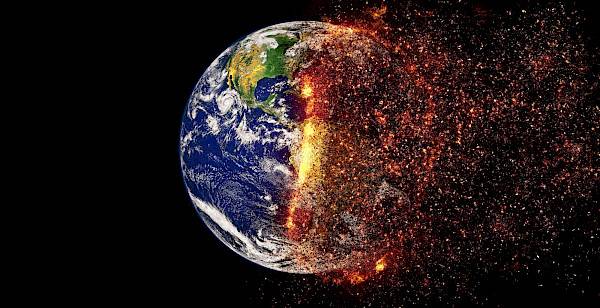Episode transcript The transcript is generated automatically by Podscribe, Sonix, Otter and other electronic transcription services.
Ricardo (4s): Hello, everyone. Welcome to the Five Minutes Podcast today like to discuss about the possibility of creation of innovation. Without necessarily Destroying The old so let me try to explain this. I was studying in the past, I would say two to three weeks, a little bit more about the Blue Ocean Strategy. And I came up with an article at the MIT talking exactly about that, that, you know, we always have this mindset that for us to create something, to implement a project that is disruptive, we need to destroy things we need to create thinks that will destroy current products or current services.
Ricardo (47s): We always think in this, I would say an Uber mentality. It means you create Uber and Uber replaces taxis. but there is a lot of possibilities that can add a massive amount of Value that are non-destructive. And this goes a little bit against of what Schumpeter said in the 1950s about creativity saying that disruptive creativity always destroys The old. I'm telling you that this is something that concerns me a lot, even more on today's word, because we have a word that is becoming far in far more fragile.
Ricardo (1m 27s): So it would be great if we could create things without just disposing of the old things. This is not sustainable. And by the way, for example, consulting in environmental services or any kind of environmental service is an innovation without the destruction of older markets. So you create a niche for you. For example, there are several apps on the internet. They didn't come to destroy order things. For example, I love flowers and there is one app called PlantSnap. PlantSnap takes photos of leaves and flowers and use AI to identify the name of that plant.
Ricardo (2m 9s): It's amazing. They've built a business that is not Destroying or their business. Another one is tinder for relationships. Tinder is not an eliminating relationship. People want to get together, but they are addressing in the problem of loneliness or they're trying to solve problems of people getting together and get to know each other, but they are not destroying the bar, the disco. So it's just a different product. And right now, one of the best examples I can tell you Today is the vaccine for COVID-19 imagine that you are just creating an absolutely incredible innovation you are not destroying, other markets.
Ricardo (2m 53s): You are just creating a new product that will solve a massive issue in the society today. So these are, are a couple of examples. So what I want to think this week is that it's possible for us at this time to think about very disruptive ideas, very innovative ones that create a new market, and they do not necessarily destroy the old one. They do not. They just expend. We have so many problems Today on this planet that can be solved, that if we can do that, we will improve dramatically the benefits to the society through new services and your products, right?
Ricardo (3m 38s): So if you Create, for example, if you implement a process on innovation or if you create something that will help people to improve in something, you are just creating a new market, like for example, social media created, they created a whole new arena for people to get together that just did not exist 50 years ago. So this is exactly what we need now. So this is something that I want us as project managers and product developers, to think what we can create, how we can implement our projects that create the needed innovation Without necessarily.
Ricardo (4m 19s): Destroying the other things. I would really recommend that you take a look on this MIT Sloan article. And also if you have not done yet read Blue Ocean, Strategy, it's an excellent book that will give you this. And I'm doing this and reading this Recently exactly because on these current times, you need to have new ideas, breakthrough ideas, but I don't want to create ideas that we'll just destroy the old I want to add and not replace. And I think this is an interesting thing for us for this week. Okay. So take a look on that. I hope you enjoy this podcast and see you next week with another five minutes podcast.

